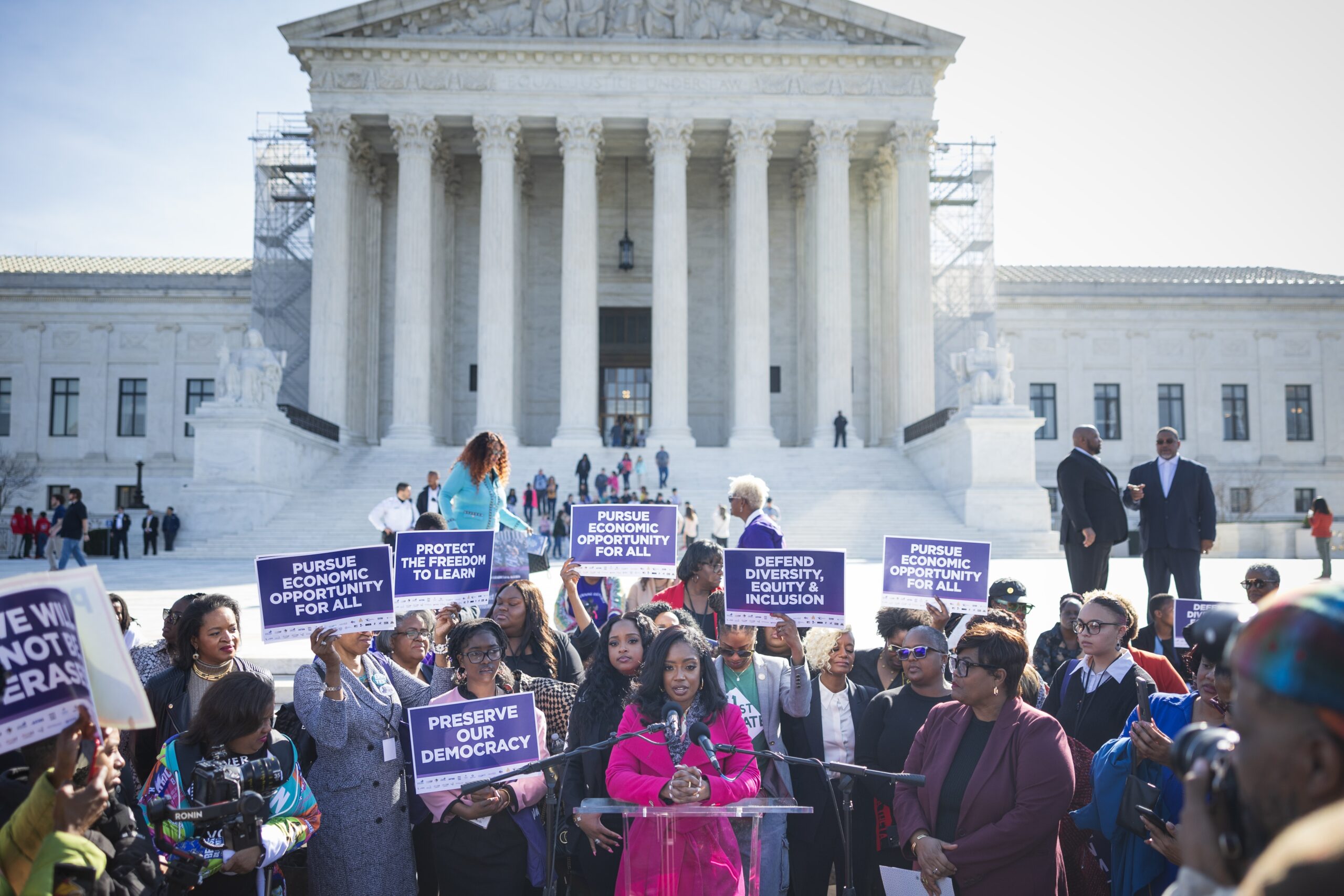Black women entrepreneurs have been dealt yet another blow. The Fearless Fund was a groundbreaking venture capitalist firm that provided grants specifically to Black female founders. However, it recently announced the end of its Fearless Strivers Grant Contest due to a lawsuit from the American Alliance for Equal Rights. The decision leaves many wondering what the future holds for Black women entrepreneurs.
Legal scrutiny is increasing on race-based initiatives. Now the end of the Fearless Fund’s grant program has left a vacuum for Black women founders who already historically receive less than 1 percent of venture capital funding.
Legal Pressures and the Retreat from Diversity
Thai Randolph is a former CEO of Hartbeat and a serial entrepreneur who has dedicated her career to advocating for inclusive innovation. Randolph doesn’t mince words when it comes to the impact of the Fearless Fund’s decision.
“The closure of the Fearless Fund’s grant program serves as a wake-up call,” she shared with 21Ninety. “This was not a failure on their part but a strategic decision forced by external legal pressures aiming to dismantle such targeted support systems.”
This reflects a growing concern that diversity-focused initiatives, already few and far between, are now at risk of being dismantled, leaving Black women entrepreneurs more vulnerable than ever.
Randolph points to the broader trend, noting that the pullback from diversity efforts goes beyond just one program.
“The sharp drop in funding for women-founded companies, from $44.2 billion in 2022 to $34.4 billion in 2023, reflects not just a retreat from diversity efforts but also poses severe obstacles to progress,” she explained.
While the entrepreneurial spirit among Black women is undeniable — they remain the fastest-growing group of entrepreneurs in the U.S. — the gap in funding continues to widen.
A Call for Broader Solutions
As a response to the increasing legal challenges around race-based funding, Randolph believes a broader approach is necessary.
“With increasing legal scrutiny on targeted support programs, we must advocate for broader funding solutions alongside comprehensive economic and legislative reforms,” she shared.
The key, Randolph explained, is addressing the systemic barriers that create inequities in the first place.
“By addressing the root causes of economic disparity and advocating for systemic changes, we can ensure that Black women receive the necessary support to thrive,” she said.
For many, the question now is who will step in to fill the void left by Fearless Fund and other similar initiatives. Randolph suggests that private organizations and individual investors will increasingly take on this responsibility.
“As traditional public and nonprofit funding sources diminish, private sectors and individuals are stepping up to support Black women entrepreneurs,” she said.
This shift, however, goes beyond just providing capital.
“It involves building a supportive ecosystem that provides strategic advice and long-term growth strategies.”
Randolph highlights her work with BrainTrust Fund I, where she serves as a limited partner, as an example of how private initiatives are moving the needle.
“We focus on empowering Black founders in the beauty and wellness space, not only with capital but also by offering crucial mentorship and resources needed to navigate and flourish in today’s challenging business climate,” she explaied.
The Future of Inclusive Innovation
Looking ahead, Randolph is optimistic about the evolution of inclusive innovation over the next decade. She envisions a future where multicultural markets and diverse teams are at the forefront of economic growth.
“As demographic shifts elevate multicultural markets, women of color are set to become even more pivotal innovators and influential consumers,” Randolph said.
Key to this vision is the idea that diversity isn’t just an ethical imperative but a business one.
“Diverse teams deliver 30 percent higher innovation and 35 percent better financial returns,” Randolph said, pointing out that companies willing to invest in inclusive innovation will reap the rewards.
In her view, the growing influence of digital and social connectivity also offers a unique advantage for women of color, allowing them to expand their reach and impact globally.
As for organizations like the Fearless Fund that have been champions for underrepresented founders, Randolph believes that evolution is crucial.
“Organizations committed to supporting underrepresented founders must constantly evolve,” she asserted.
